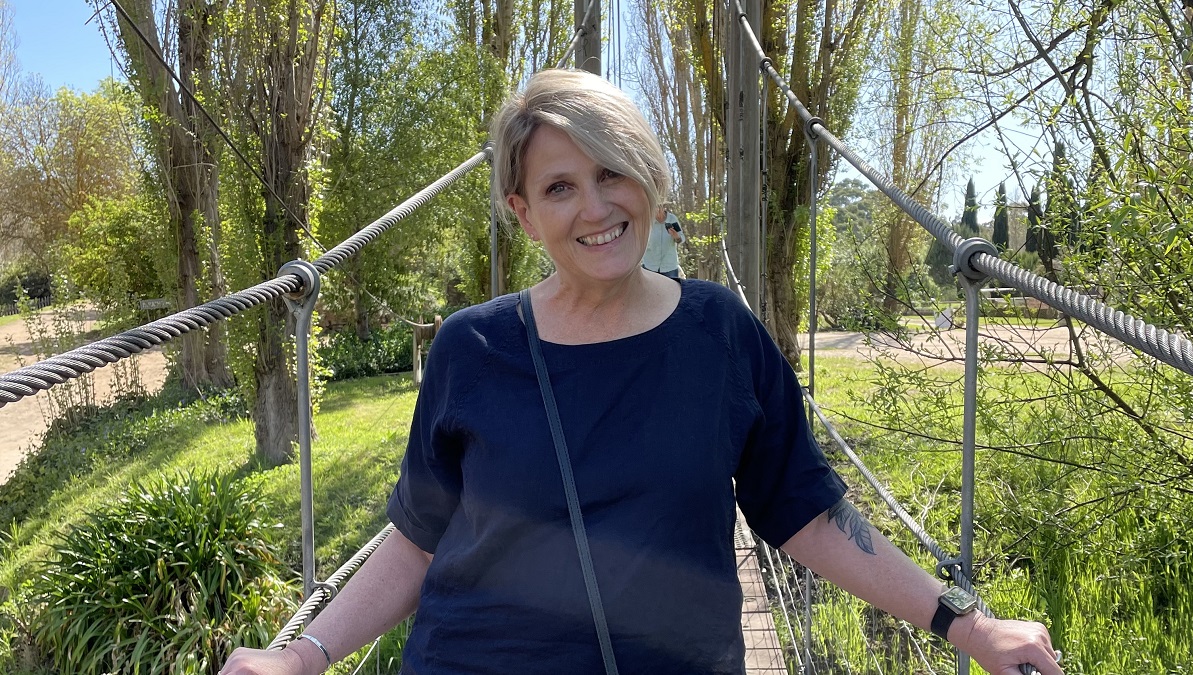
Marja Elizabeth supports South Australia’s frontline responders in her role as Project Manager for the Protecting Emergency Responders with Evidence-based Interventions (PEREI) project. She told us more about PEREI, and that deciding to return to studying changed her life.
What is your role here at Flinders?
I’m the Project Manager for a wellbeing and resilience program aimed at South Australian first responders in their first five years of service, their supervisors and significant others, being family members, partners or friends. The program, Protecting Emergency Responders with Evidence-based Interventions (PEREI), is funded by the Movember and Breakthrough Mental Health Foundations and aims to improve resilience to the potentially negative effects of occupational stressors, whether that’s exposure to traumatic events or organisational and operational challenges of being an emergency services worker. While there are many rewarding aspects of being a first responder, we also know it is a high-pressure role with the added challenges of working shifts and being on call. We know that the rates of anxiety, depression and post-traumatic stress are double the number when compared with the general population, and that the risk increases the longer someone is in service. We hope that building resilience in early-career workers and increasing mental health support within teams will go a long way to reduce the risk of these mental health conditions and increase a person’s chance of long and healthy careers.
Tell us about your work.
The program for members is based on a successful evidence-based intervention developed at the University of Oxford and we are also using a modified version of the Be Well Plan for significant others, developed by SAHMRI and Flinders University. The program for supervisors is the most contemporary research on what we know can build healthy first-responder individuals and teams, developed specifically by the Flinders team. PEREI goes above and beyond other wellbeing programs by linking these evidence-based programs together in a three-pronged approach. What we expect to see is that when a member, their supervisor and significant other are all involved in the programs, there is a greater effect on longer-term resilience and a greater reduction in mental health issues. The project has been well funded, so we will be able to collect long-term data – up to two-years after program participation.
I have been managing the project, including the development and tailoring of program material for the Australian first-responder context – organising databases and data collection systems; liaising with SA emergency services in the rollout of the programs; conducting recruitment and training sessions; implementing the communication and media campaign both online and print; supervising wellbeing coaches; running supervisor sessions, and generally anything and everything that needs to be done to ensure the program is a success. We have almost reached 70% of our target for enrolling members into the program and more than 80% of our target for the supervisor program, which is fabulous. We will be recruiting for new participants until the end of March 2024, but that isn’t when the program stops. Anyone who has signed up by that stage will have access to the program, so our service delivery will continue for at least another year after we close recruitment.
What is your favourite thing about your job?
I do a lot of trauma therapy and while it is really rewarding to see people becoming well with good PTSD treatment, it’s great to be involved in something at the prevention/early intervention end rather than always working at the therapeutic end. I’ve also had a long career in organisational change management and have often been employed to develop systems, programs and processes for more effective service delivery for clients. It’s a great program that combines intervention at an individual level and at the broader service system level.
What are you most proud of?
Doing a Clinical Psychology PhD as a mature-age person was a big decision for me, given I had been registered as a psychologist for about 20 years and could probably have just kept doing what I was doing without taking on all that extra work! It was also a big Randomised Control Trial for a PhD, with almost 100 clients receiving Cognitive Processing Therapy for PTSD (we had decided on 60 at the outset but people just kept coming!) alongside the coursework and placements. Life wasn’t smooth during that time on a personal level either, so it was all a bit tough. What I was most chuffed about was being nominated by Flinders for the APS Clinical College Student Prize and awarded that prize. I really did have to draw on my resilience and support networks, and I’m pretty proud of how I managed at the time and how it all turned out.
How do you your spare time?
When I was younger, I never did much outside of work and study, so some years ago I thought I’d better balance this a bit more. I have fabulous friends and two very spoilt dogs who enjoy a walk and a trip out to the bush, and we moved closer to the beach. I’ve learnt how to play bridge, I volunteer on a few boards and committees, and I love the Adelaide Fringe, the Adelaide Festival and the arts in general. I love being outdoors – motorbiking, e-biking, kayaking – and travelling, and I love to paint and read when I need something more low-key. I’m now learning some of the tricks about mentalism. Who knows – that might be my next career move!
What’s your go-to coffee order?
I drink my coffee strong and black, but it can’t be too short and bitter, or too long and watery. Generally, I ask for a strong long black with only about two thirds of the water, and a whole lot of gesturing is involved to explain the water height – but it’s often a hit-and-miss result, to be honest.

